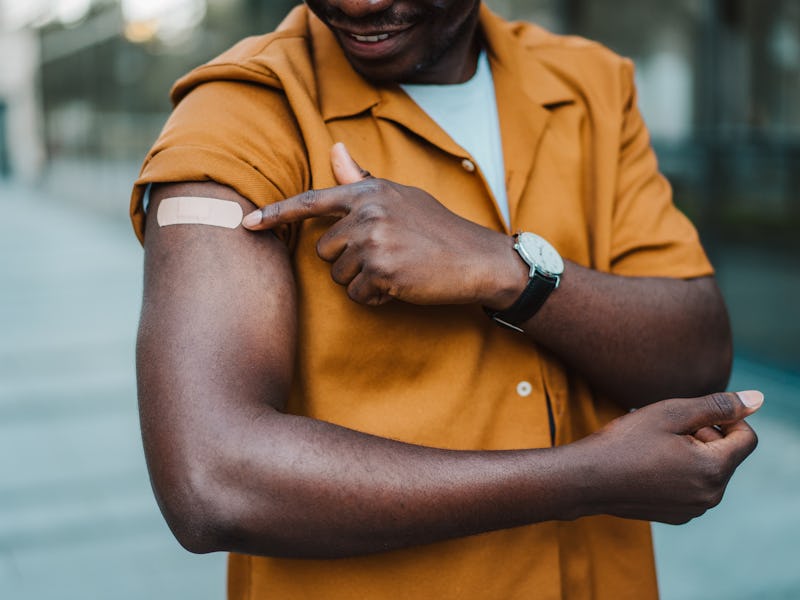When Should You Get Your Next Covid-19 Booster? There’s One Easy Answer To This Question
Here’s what you need to know to make the best decision, which should be a fairly simple choice to make.

It’s that time of year again to gear our immune systems up for another season of respiratory bugs like influenza and, most importantly, SARS-CoV-2. In fact, in recent weeks, a new coronavirus strain has dominated in the U.S., making up 17 percent of all infectious cases and an uptick in hospitalizations.
Here’s the good news: The newly identified strain, EG.5.1 (unofficially nicknamed Eris by social media users), doesn’t appear to be a major threat. The World Health Organization issued a press release earlier this month noting that the new variant, which is an offshoot of the previous reigning omicron variant, doesn’t appear to bring any increased disease severity.
Nevertheless, vaccine manufacturers like Pfizer/BioNTech, Moderna, and Novavax were already switching up their shots in preparation for the new season. In fact, revised shots are expected to be ready sometime in September or October. So, if you haven’t yet gotten a booster in a while, you might be wondering whether it’s wise to get it now or wait until the new one comes out. Here’s what you need to know to make the best decision, which should be a fairly easy choice to make.
What’s new about the revised shots?
Following a recommendation from its science advisory panel in June, the U.S. Food and Drug Administration instructed vaccine makers to target the XBB variant of SARS-CoV-2 for the fall since it was dominant at the time.
This vaccine won’t be bivalent like the other shots consisting of the original strain and the omicron BA.4/5 strains. Instead, it’s a monovalent formulation, as was decided by the FDA back in January. The switch came as a result of some studies suggesting combining variants in the booster undermined their effectiveness due to a biological phenomenon called immune imprinting, where a bivalent shot elicits a stronger immune response to ancestral viruses versus its newer descendants, reported The New York Times.
This second generation of vaccines won’t be a perfect match, but as Eris is considered a descendant of the XBB lineage, they’re still expected to provide pretty good protection.
"XBB is the lineage right now, and there is good cross-protection, no matter what antigen is chosen, according to the data that we've been shown," Eric Rubin, editor-in-chief of the New England Journal of Medicine and one of the FDA's vaccine advisers, said at the June meeting.
When should you get a booster, and do you need one?
The new vaccines will be a better match since neither the original variant nor omicron BA.4/5 strains are still in circulation. But whether you should hold off until then is a bit nuanced, depending on your age, vaccine status, and past Covid-19 and medical history.
Infectious disease specialist Preeti Malani of the University of Michigan School of Medicine told NPR if someone has had all their recommended shots but not their latest booster and has never had Covid-19 and may be at risk of catching the virus as they’re traveling or other circumstances, then they could get the current booster and wait some months after the new ones roll out.
However, if you’ve had Covid-19 anytime during the pandemic, are up to date on your vaccines, and aren’t at a high risk medically, it might be better to wait until the fall when the new ones come out. Malani recommends having a conversation with a healthcare professional to evaluate what’s the best recourse for you.